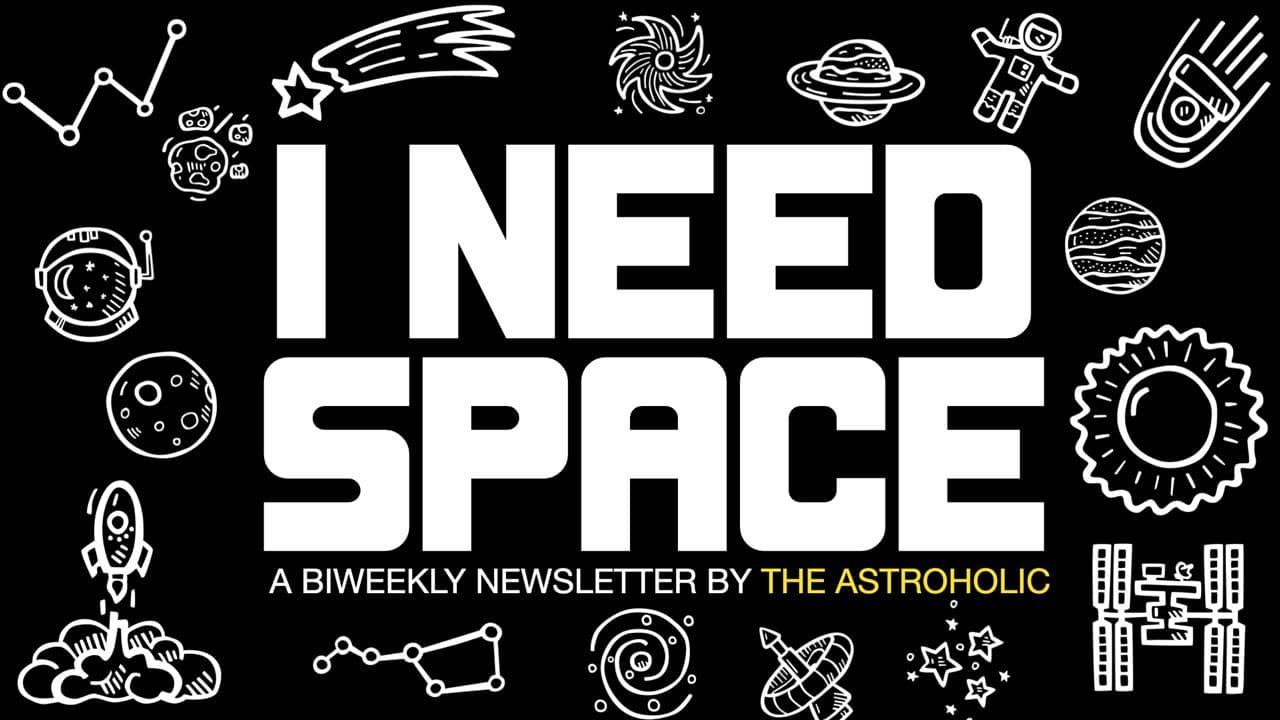I want to expand on a passing comment from my previous newsletter. I would love to live in a real Star Trek universe. I do not need to be the captain, but how incredible would it be to travel across the stars and explore the universe directly? Studying exoplanets from their own orbit, seeing the formation and death of stars from a unique vantage point. Stick me in a science officer uniform and beam me up!
You know what else would be great? Not having to deal with discrimination, waking up in a world where people are not experiencing a genocide, or war, or famine, or extreme weather events, or going bankrupt to pay medical bills… the list goes on.
The space sector loves Star Trek and Star Trek connections (check out this excellent podcast by Kevin Fong about the naming of the first space shuttle). This has spread through the private space sector, and it has become a mantra that our species must become interplanetary. It is our destiny, bla bla bla, insert some assorted bullshit about humanity’s future here.
Post-pandemic CEOs and celebrities only known for reality TV have loved going to news organizations to proselytize on how nobody wants to work anymore. The irony was lost on them, clearly. When it comes to the space sector, the people who do not want to do the work are the people in charge - those who have the funds. Everyone wants rockets and spaceships, but where is the work to understand how to best live in space? They are barely understanding how to make rockets (yes, this is a reference to Starship exploding. Again).
What would be the solution to this? Massive public investment into multisector studies on how to not only survive, but thrive in space? Looking at technology that can be translated to Earth’s life: such as advanced hydroponics, efficient use of resources, and cutting-edge telemedicine? No, don’t be silly. The answer we got this week is A.I.
In a fascinating interview in Wired, Demis Hassabis, CEO of Google's DeepMind and Nobel Prize Winner, talks about Artificial general intelligence (AGI). This is a type of artificial intelligence that would not only match human cognitive abilities but also surpass them.
Tell me what you envision when you look at our future in 20 years and, according to your prediction, AGI is everywhere?
If everything goes well, then we should be in an era of radical abundance, a kind of golden era. AGI can solve what I call root-node problems in the world—curing terrible diseases, much healthier and longer lifespans, finding new energy sources. If that all happens, then it should be an era of maximum human flourishing, where we travel to the stars and colonize the galaxy. I think that will begin to happen in 2030.
I’m skeptical. We have unbelievable abundance in the Western world, but we don't distribute it fairly. As for solving big problems, we don’t need answers so much as resolve. We don't need an AGI to tell us how to fix climate change—we know how. But we don’t do it.
I agree with that. We've been, as a species, a society, not good at collaborating. Our natural habitats are being destroyed, and it's partly because it would require people to make sacrifices, and people don't want to. But this radical abundance of AI will make things feel like a non-zero-sum game—
Wired June 04, 2025
AlphaFold, the reason why Hassabis got the Nobel, is truly a game-changer in the study of proteins. On that, we cannot fault him. I am glad that Steven Levy pushed back with skepticism at the claims. We can already do a lot that tech people hope AGI will solve. We can improve society, and it is not the people who are selfish; it is capitalism that makes demands of us.
Let’s pick a specific point: “We will begin to travel the stars and colonize the galaxy by 2030.” Beyond the awful use of the word colonize, 2030 is 1,656 days away. With Starship's continuous explosions and Trump’s cuts to NASA, I am doubtful we can get to the Moon by the end of this decade, let alone visit other stars. Also, why would we be going to other stars? The most realistic interstellar technology requires centuries to travel to our nearest star. Bar us mastering cryosleep, you get on a spacecraft with your family, have kids, die in space, they have kids, they die in space, and so on until a descendant passes by the planet Proxima b, and confirms that it is a lifeless rock.

While we wait for a Trek Future, here are some pretty cool space achievements of this week! The European Space Agency has been able to create the first artificial solar eclipse, using two spacecraft moving in synch at millimeter precision. Also, the European Southern Observatory has released a thousand-color image of the beautiful Sculptor galaxy! You see, we can do incredible stuff when we want to!


